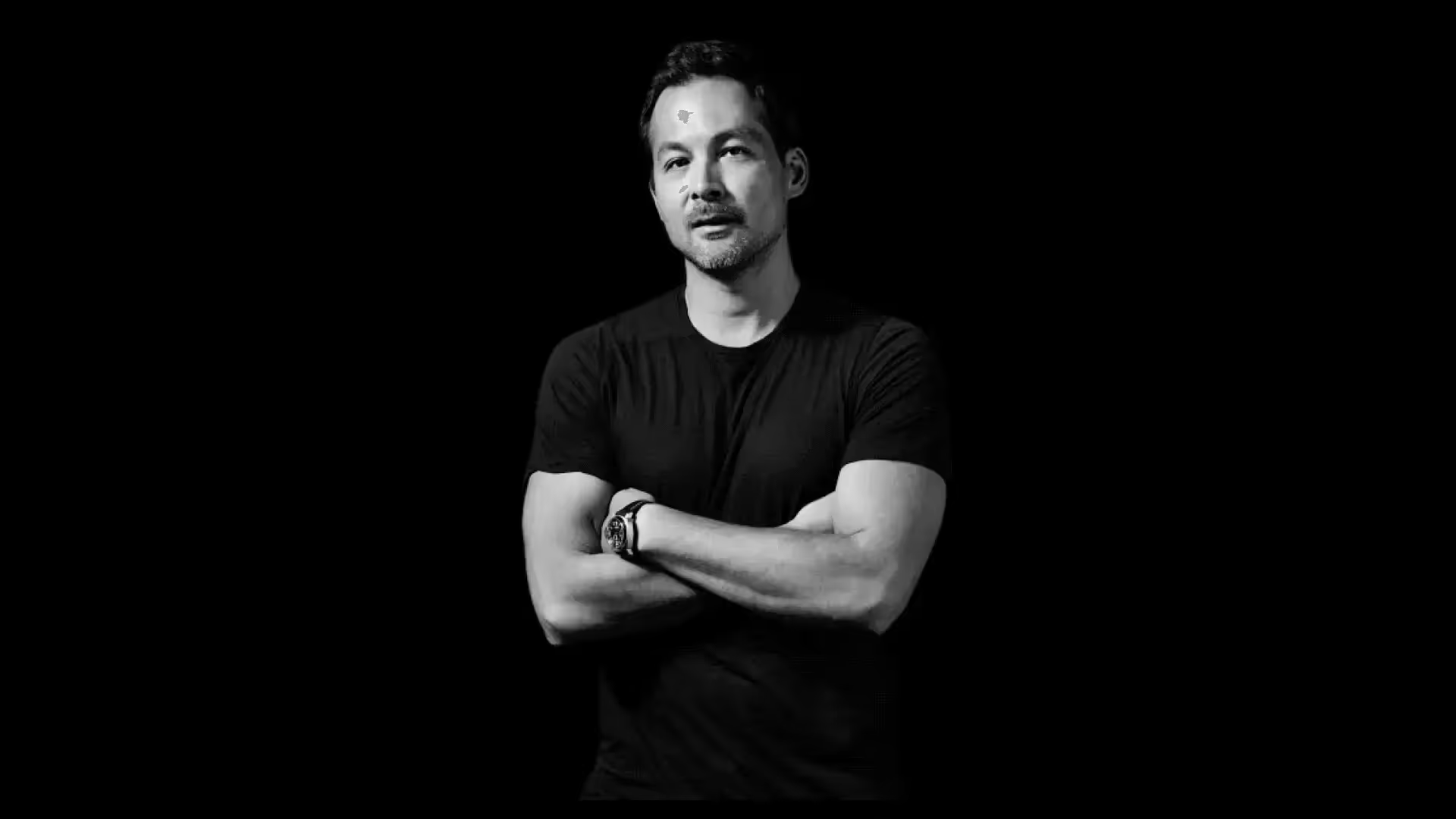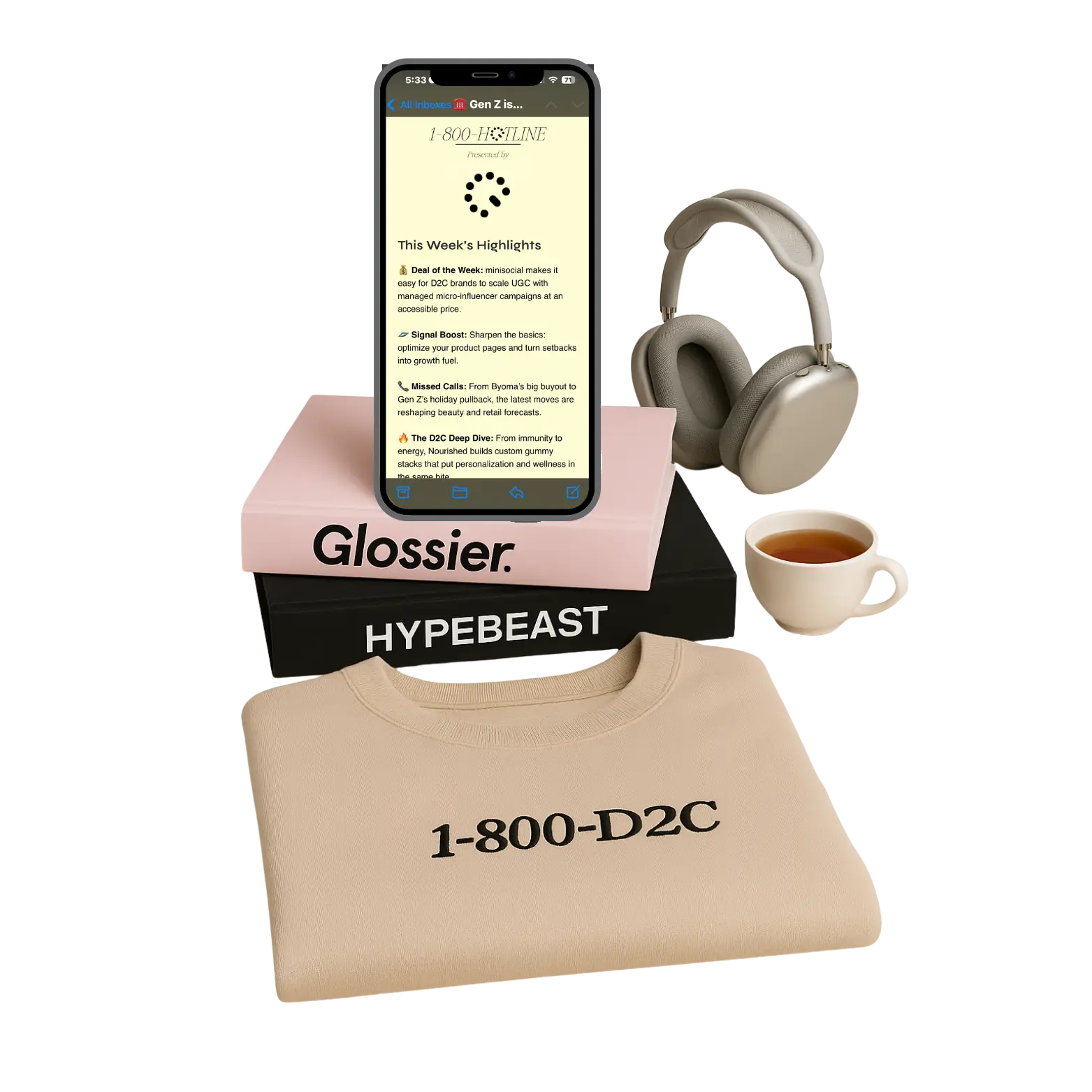
I'm probably quite lucky in that I have a really varied background. I studied engineering. I went to work in the city. I did an MBA, I got involved in startups with the Royal College of Art. But the one thing that's been the constant thread through my life is an interest in working out and sport. I grew up watching Arnie and Bruce Lee movies - So me and my mates were always in the gym, reading copies of bodybuilding magazines and figuring out how to work out, eat right etc. And that’s how protein powder became a staple in my life for many years.
And then in 2015, Cowspiracy came out. I watched that, pretty much like everyone did. But it really piqued an interest in me and I took a deep dive into that whole space. I read the China Study and looked at a lot of the research. But remember: Back in 2015 veganism and plant-based living wasn't the kind of thing it is now. It was still fairly niche. So in devouring research, it just struck me that with all the emerging evidence at that time on health trends, sustainability, planetary concerns, climate change, and not to mention animal welfare - I realized that veganism wasn't just going to be a trend. It was going to be a big systemic change.
So as somebody who uses a lot of protein, I went out and tried all the vegan proteins around. And they tasted terrible. Most were add-ons to a very dairy based range, it was a box ticking exercise. And then beyond that, just looking at that workout nutrition space in general, you either had the very big gym bro type plastic tubs with terrible graphic designs or on the other extreme: The slightly hippie-ish crazy health stuff. There was nothing really in between. And the other thing was that all workout brands dumbed down their mission to be nothing more than supplements to get big biceps. There wasn’t much to elevate the idea of nutrition. So I wanted to broaden that definition of nutrition, to be about how you nourish your whole self. Touching upon how to nourish your mind, with tools like meditation and mindfulness, and bring in aspects of education through content and community events. The other big thing was to take something that by definition is about the self and make it about others - that’s how our Form Feeding Fund was born. Every product purchased helps provide food and healthcare at Bansang Hospital in The Gambia.
So in short, I was interested in the space, I saw an opportunity and I trusted myself to take on this big challenge of creating something beautiful, performance-driven, aspirational and that tasted good.

I wouldn't say it felt like destiny, but it certainly felt like a lot of my previous experience and interests were leading me in that direction. I had great financial experience. I'd spent a number of years running a manufacturing company, so I knew about manufacturing and operations. Manufacturing businesses are the toughest businesses to run: every penny & every percentage point counts. It teaches you a very good mindset in terms of being lean and being very smart about how you manage everything from raw materials to stock, to being very clever with working capital. And then I was always into design and brands. So Form gave me an opportunity to bring all of my experience to that point together.
Pretty much right at the beginning. The very first person I reached out to was actually our head of nutrition, Dr. Adam Collins. The first thing I thought is that I needed a credible person by my side on the nutrition side. He’s the head of nutrition at the University of Surrey and a very knowledgeable person. And then I connected with the co-founders: Pete’s a little bit like me. He’s a very good generalist. He’s done everything from managing growth in the early days and setting up manufacturing to now looking after operations. And then Natalia, who is our head of brand. She handles a lot of PR comms, social channels, partnerships and marketing. She came from LVMH and Jaguar Land Rover and is very well networked in the London wellness space, which was pivotal for us in the early days. And over the years, we’ve grown very carefully and we’re about 10 people now, which is a nice size to get your arms around. I’m very grateful for a really strong team.
Well… in the words of Mike Tyson: “Everyone has a plan, till you get punched in the face”. My initial plan was to be heavily skewed on D2C, I liked the closeness to the data and the consumer. But that changed pretty much almost on launch because Natalia introduced us to Planet Organic and they loved our product. They’ve got about 15 stores in the mid- high-end range, with a very well curated set of products. They put us in, literally a month after we launched online. So that was our first retail account and within 2 months we were the best selling brand there.
Since then we’ve grown quickly and have adopted a fully omni-channel approach. Percentage-wise we’re roughly 60-70% online (which includes Amazon) and 30-40% retail. But we don’t look at retail partners necessarily on volume, we’ve been mostly concerned with building the brand. So rather than being everywhere in big chains, we chose to be in places like Selfridges, Harrods or Soho House, the higher end hotels, Equinox in the US and so on.. Today we're looking to broaden out those channels.
We weren't one of those brands that just grew by putting loads of money behind Facebook ads. We've always done them, but it's never been a big percentage of our new customer acquisition. We mostly grew by having really great customer satisfaction. We also had a lot of genuine/unpaid support from influencers which drove a lot of awareness in the space. And along with that we had such amazing press here in London: “#1 protein” everywhere from Tatler to Vogue, to GQ .. so much amazing press. We were very fortunate with the early traction. And that came down to a great team, a great product as well, and then an amazing community behind us.
In terms of Facebook & Instagram - it's been a roller coaster, as you probably know, especially over the last year with COVID and then the iOS changes. So for us, it's always an experiment. Social media still drives a lot of traffic and recently - SEO started to do really well for us too.
Detailed attribution is always very tricky. Now we're trying to relax a little bit on that and look at things at a much higher level. But in the beginning, we were totally dialed in on every single channel and their efficacies. Today - with all the changes that have been going on, it’s getting almost impossible to do well.

I think if you turn off your Facebook ads and your sales dry up, then you don’t really have a brand. I've been around long enough and in enough businesses to know that you don't want to be too dependent on any channel or on any customer. You need to have a diversified base of revenue.
So on the retention point, we do all the usual stuff on emails and automation there. I wouldn't say that that's particularly clever. My feeling is that product drives retention. If people love the product, they buy it again. They don't buy a product again because you sent them an email. I'm sure email has an impact, but it's the product first.
And that takes me back onto the first part of your question, which is that product is never really ever one and done because there's always feedback. And there's always things changing in our space, like new ingredients or new flavorings or new ingredients being allowed with regulations and so on. So we have a continual process of improvement.
With all of our products, we want to have an emotional connection with the customer. So if they drink our vegan protein powder in a shake and it tastes delicious, that's a win. If it reminds them of a favorite dessert, that's amazing. If there's a sleep product that solves someone's sleep issue, that's an important emotional impact for them too. So with all of the products that we have, we want to create that kind of connection, and embed ourselves in as many moments during the day.
We launched in the US just at the beginning of COVID actually. So that was interesting timing. For the US, we had to basically build a whole new range of SKUs because the regulatory landscape is different there. Packaging requirements, labeling and so on are different. So we've effectively got all the same products, but in US packaging as another set of SKUs for our website, which is a multi-region our UK website.
Since we haven’t been able to travel back and forth as much as we’d hoped for, a lot of the growth has come via Facebook & Instagram marketing, Press and influencer marketing - that kind of thing. But we're very much a brand about real relationships with influencers, gyms, retailers, or even doing events and things like that. So I'm really hoping that towards the end of this year we will be able to travel to the US and get going there. But our first year in the US has been good - we're in Equinox and places like that + we have some great stockists in LA and so on.

I’ve seen a lot of founders get really into the brand and the product, and then end up building a beautiful website and launching without giving any thought to the marketing. I think you've got to really have a holistic approach to all of that. That's the kind of mistake I see the most, launching into a vacuum.
And the other thing is that you just have to do it. To start. D2C is such a rewarding and fulfilling space to be in. So if you've got anywhere near half a decent idea, the ability and hopefully a route to some funding: Just go for it. And, if it's not successful, you learn so much from all the mistakes. That’s a bit of a cliché, but it’s true.
Yeah. For me, the best brands have lots and lots of layers - like an onion. At first, you might be attracted to a brand because of the product or whatever, but then the best brands - the more you look into them, the more you get drawn in. You might see a brand in a shop, and enjoy the packaging, but then you taste it and it's amazing, then you'll look at it and you notice the packaging is compostable, and then you look a bit closer and you see we're a B corporation. Then you look even closer on the website and you learn about our charity. These types of layers tell a real story and create depth. It's like a friendship, you have to connect on multiple levels.
Discover new D2C brands, new eCommerce tools and read in-depth founder reviews each week.
